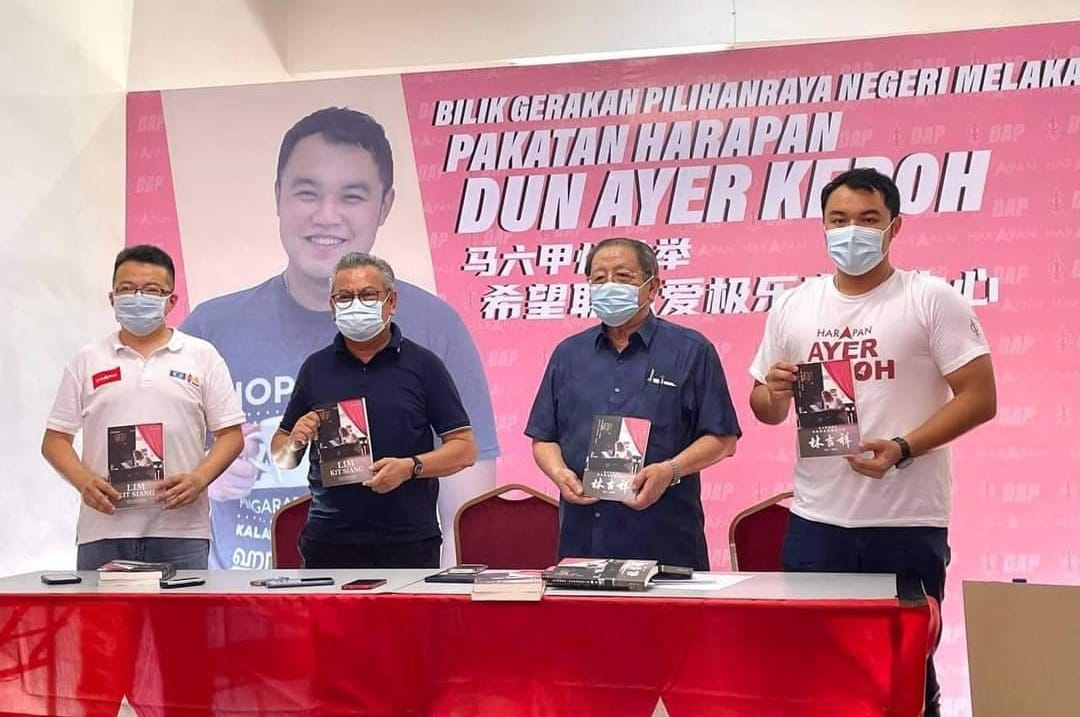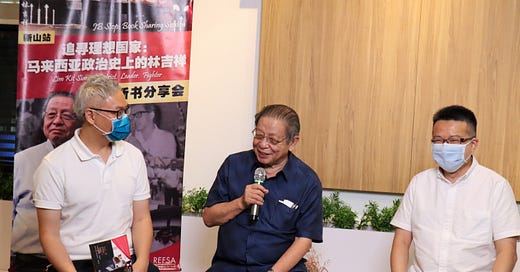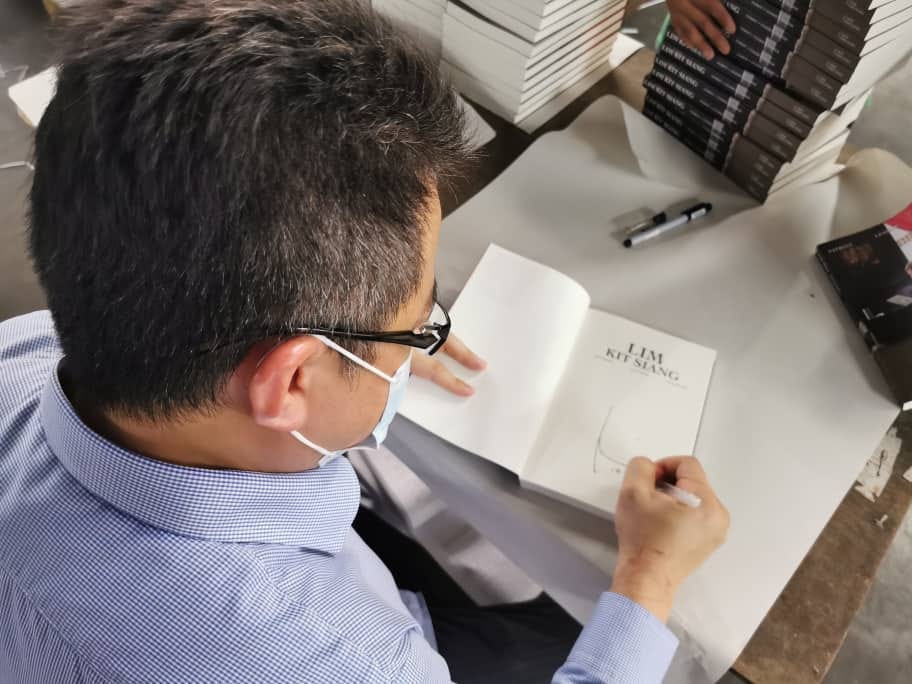Lim Kit Siang’s nation-building ideas
Building a 'Malaysian-First' nation through our struggle is one of Kit’s major legacies that we must always hold on to.
Today, I would like to say a few words about my book “Lim Kit Siang: Patriot, Leader, Fighter”, which I co-authored with Wan Hamidi Hamid and Ng Wei Ling.
The original English version was published in April, the Chinese translation has been in the market since October, and the Bahasa Melayu version will be available in January 2022.
Following multiple lockdowns and other immediate priorities, we only introduced the book at a Chinese language book sharing session in Johor Bahru on 6 November and at a press conference in Melaka on 7 November, both events with Kit’s presence. Hopefully we will be able to do more sessions to discuss the book.
Kit is a rare breed in Malaysian politics. Not only has he been writing without fail for the past five-and-a-half decades, he also formulated a set of alternative nation-building ideas as early as the second half of 1960s, before he turned 30, and continues to be steadfast in upholding these ideas.
I wrote in the book:
“Scholar Dr. Phoon Wing Keong opined that Kit is unique in Malaysian politics because after dealing with many important foundational issues, especially on nation building, very early on in his own, and the party’s political struggle, he has held onto to those ideas firmly until this day.” (pg. 21)
At the DAP-Gerakan cultural debate in November 1968, Kit said “we are anti-Malay-chauvinism, just as we are anti-Chinese-chauvinism or anti-Indian-chauvinism. We will be vigorously opposed to any call to make Chinese or Indian culture the (only) basis of Malaysian culture, or any call that Malaysian literature can only be written in the Indian or Chinese languages (pg. 29).”
Searching for a Malaysian nationalism
Unlike most other politicians, Kit is conscious that a Malaysian nationalism project requires everyone to get out of one’s ethnic comfort zone. The Malaysian First mindset is a work-in-progress and often suffers setbacks.
As early as the 1990s, Tun Dr Mahathir Mohamad spoke of Bangsa Malaysia in his Vision 2020. Later, Datuk Seri Najib Razak advertised 1Malaysia, and now Datuk Seri Ismail Sabri touted “Keluarga Malaysia”. Unfortunately, these good ideas usually end up as mere slogans.
What Malaysia needs is a genuine commitment to a Malaysian nationalism that places all Malaysians at its core, without too much differentiations.

He constantly implores his audience not to stay in within the specific world view of any particular ethnicity but to embrace a Malaysian world view.
Of course, he knows it is an uphill task to persuade Malaysians to think beyond ethnic identities. But for Malaysia to be a great nation, Malaysians will have to think beyond parochial identifications. We must strive to find a common Malaysian purpose and not to appeal to ethnic supremacy or victimhood, which is often two sides of the same coin. Building a Malaysian First nation through our struggle is one of Kit’s major legacies that we must always hold on to.
In the years when UMNO reigned supreme and when the Malay First ideology was promoted, the DAP veteran instilled in the minds of non-Malays that much as the ruling party was terrible, it didn’t mean we had to walk away from the Malaysian nationalism project.
This is one of Kit’s major contributions in his long 55-year political journey.
My senior colleague in the party, M. Kulasegaran once told the story of himself wanting to leave Malaysia forever, never to return after his tertiary education due to the perceived systemic unfairness but changed his mind after being inspired by Kit’s 1978 book Time Bomb in Malaysia.
He felt a strong calling to return to Malaysia to participate in the nation-building process (pg 48-49).
With such a testimony, we should continue to share our hope. No matter how terrible the government is, we Malaysians must not give up on taking part in the effort to build a better Malaysia.
Defending parliamentary democracy
Parliamentary democracy is often treasured only when it is lost. Kit has dedicated his life to the upholding of parliamentary democracy, whether when the communists were trying to dismantle it or when the ruling UMNO was undermining the institutions to impose authoritarianism.
I notice that recently there are some writers, especially among the non-Malays, who are trying to instil the view that elections are futile, and politics is useless. Such views do not help the Malaysian nationalism project.
Whether Malays or non-Malays, we must try to inspire everyone to contribute to make the nation a better place for all.
Malaysia is at another crossroad now and I hope more Malaysians will read and understand Kit’s struggles as we navigate this uncharted water.





